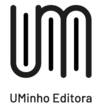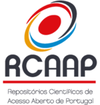Ethics Code
2i Journal aims to contribute to the advancement of scientific knowledge within its scope of intervention, publishing works resulting from innovative and relevant research, produced and disseminated in accordance with principles of integrity, transparency and good practices in science. In order to promote responsible autonomy on the part of all those involved in the research and publication process, rejecting any type of unethical conduct, including any form of plagiarism, the Journal adopts a set of guidelines and internal procedures that govern its activities, remaining aligned with the indications of national and international codes, such as the COPE code of ethics (Committee on Publication Ethics: https://publicationethics.org/) and the Code of Ethical Conduct of the University of Minho.
Adopting a policy of transparency, editorial integrity and good practices in terms of ethics of publication, which extends to editors, authors and reviewers, 2i Journal rejects any type of unethical conduct, including any form of plagiarism.
All agents in the editorial process are guided by the following duties:
Editors' Duties
2i Journal is committed to the promotion and dissemination of scientific knowledge, defending the principles of open science and providing open, free and immediate access to its contents, in the belief of contributing to a greater democratization of scientific work. The editors of the Journal are therefore guided by the following principles:
1. Professional, scientific and academic responsibility and competence: Editors are obliged to provide a high quality service and to the best of their abilities and knowledge. Guest editors must collaborate with the Journal's responsible editors in the issue production process, providing all relevant documentation and information for this stage. The selection of reviewers by the Editors will always consider their competence and qualifications to express a critical and specialized appreciation of the articles to be evaluated. Editors are also responsible for meeting deadlines for reviews and publishing accepted papers.
2. Publication decision: Based on the Reviewers' recommendations, Editors may accept, reject, or request modifications to the article. The Editors undertake to publish all articles accepted for publication, except in cases where: i) gross errors or reprehensible ethical conduct (plagiarism or other gross practice) are detected after acceptance; ii) the large number of submissions requires a selection of contributions in order to maintain the balance of texts published between the various issues of the Journal.
3. Confidentiality and Integrity: The Editors ensure the confidentiality of the double-blind peer review process, as well as the anonymity of authors and reviewers. In case of detection of plagiarism or other fraudulent practice, editors will follow the COPE guidelines (notably, the flowcharts regarding publication ethics: https://publicationethics.org/resources/flowcharts). The Journal has a plagiarism detection system to guarantee the originality of published articles. If any ethical violation or other misconduct is detected, Revista 2i will consider withdrawing the text from publication, in accordance with the COPE Guidelines for retracting articles. The Journal is available to publish corrections, clarifications or apologies whenever necessary.
4. Fair play: The Editors will always evaluate the texts submitted to the Journal regarding their intellectual content, as long as their topic fits within the theme and/or general scope of the Journal. Editorial decisions are not influenced by the origins of the manuscript, including the nationality, gender, ethnicity, political beliefs, race, or religion of the authors.
5. Transparency and conflicts of interest: Materials in a submitted text may not be used in the research of the Editor or any other member of the editorial staff without express written consent from the Author(s) of the text. The Editors undertake to ensure that there are no conflicts of interest (financial, institutional, collaborative or any other type of relationship) between Editors, Reviewers and Authors.
6. Respect for human rights, dignity and diversity: Although the content and language of articles are the responsibility of the Authors, the Editors will not allow texts with discriminatory and/or offensive content or language towards a certain social group to enter the publication. in the evaluation process, rejecting them in advance.
Authors' Duties
1. Professional, scientific and academic responsibility and competence: Authors must ensure that the submitted text constitutes a relevant contribution to the areas of knowledge of the Journal, constituting a significant advance in the respective state of the art.
2. Confidentiality and integrity: The Authors do not falsify or fabricate data, sources, results, conclusions or credentials, ensuring the protection of the confidentiality of information, notably information of a sensitive nature obtained during the course of the research.
3. Authorship of the text: Authorship of texts should be limited to authors who provided substantive contributions to the conception, design, execution and interpretation of the reported research. In the case of co-authored works, articles must be submitted with a complete description of each author's individual contribution to scientific production [in accordance with the CRediT (Contributor Roles Taxonomy) methodology]; This information should be included on the title page of the article. The author responsible for the article must ensure that all co-authors have read the final version of the article to be submitted and that they agree with its publication, as well as with their inclusion as co-authors of said article.
4. Originality: Authors must ensure that they have produced a completely original and unpublished text, without the use of plagiarism or other fraudulent practices, making sure that any work or words of other authors have been duly credited and referenced.
5. Acknowledgement of sources and research data: Acknowledgement of the work of other Authors must be included in any manuscript. Authors should always cite publications that were preponderant in the work being reported. 2i Journal also encourages authors to include, in articles reporting results derived from research data, a Data Availability Statement; The Data Availability Statement should appear on the cover page of the article and include information about where data supporting the results reported in the article can be found, including, where applicable, hyperlinks to the datasets analyzed or generated during the study. the study. When research data are not publicly available, this should be stated in the manuscript, together with the conditions for accessing the data.
6. Ethical approval: The Authors undertake to obtain informed consent, oral or written, from research participants or their legal representatives, whenever ethically recommended.
7. Transparency and conflicts of interest: Authors must disclose in their text any financial or other conflicts of interest that could be taken as a factor influencing the results or the interpretation of the data reported therein. All sources of funding for the research carried out must also be disclosed in the text.
8. Significant errors in published works: Whenever an Author discovers a significant error in an article, it is his or her obligation to immediately notify the journal Editor and provide the information necessary for its correction. The Editor will insert a correction note in the published article.
9. Respect for human rights, dignity and diversity: The Authors undertake not to use offensive, discriminatory or abusive language, especially with regard to: ethnicity; culture; national origin; gender; sexual orientation; age; religion; language; health conditions; socioeconomic status.
Reviewers' Duties
1. Responsibility and professional, scientific and academic competence: By agreeing to review texts submitted to 2i Journal, reviewers undertake to provide a service of high scientific quality and to the best of their abilities and knowledge.
2. Confidentiality: Any text received for review must be treated by the Reviewer as a confidential document.
3. Acceptance of the review: Any Reviewer who cannot guarantee the submission of his/her review within the stipulated deadline must report this fact to the Editor, so that the manuscript can eventually be sent to another Reviewer. He/she also undertakes to only accept to carry out the review if he/she is an expert in the field of research of the manuscripts.
4. Objectivity and respect for human rights, dignity and diversity: Manuscript reviews must be conducted objectively and observations must be formulated clearly and supported by supporting arguments. Reviewers should write their comments in a constructive and objective manner, refraining from resorting to hostile language or making derogatory remarks. Their evaluations cannot be influenced by the manuscript's origins, nationality, religious or political beliefs, gender or any other characteristic perceived by them regarding the authors, or by commercial reasons.
5. Indication of sources: Reviewers should ensure that Authors have identified all sources used in their research. A Reviewer should also bring to the attention of the journal Editor any similarity or overlap between a text under review and any other published article of which he or she is aware.
6. Transparency and conflicts of interest: Any of the following situations is considered a conflict of interest and should be avoided: having been a co-author of publications together with at least one of the Authors in the last three years; be/have been the doctoral supervisor of the Author(s) or be/have been supervised by the Author(s); receive professional or personal benefits following the review in question; have a personal relationship (namely, family or friendship) with the Author(s); have a direct or indirect interest in the article under review.

.jpg)










